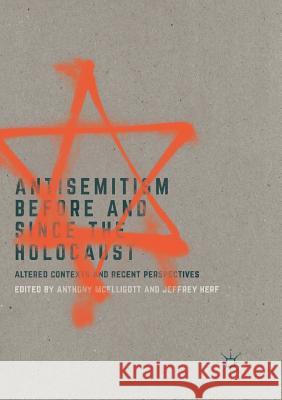Antisemitism Before and Since the Holocaust: Altered Contexts and Recent Perspectives » książka
topmenu
Antisemitism Before and Since the Holocaust: Altered Contexts and Recent Perspectives
ISBN-13: 9783319840345 / Angielski / Miękka / 2018 / 406 str.
Kategorie:
Kategorie BISAC:
Wydawca:
Palgrave MacMillan
Język:
Angielski
ISBN-13:
9783319840345
Rok wydania:
2018
Wydanie:
Softcover Repri
Ilość stron:
406
Waga:
0.50 kg
Wymiary:
21.01 x 14.81 x 2.21
Oprawa:
Miękka
Wolumenów:
01
Dodatkowe informacje:
Wydanie ilustrowane











